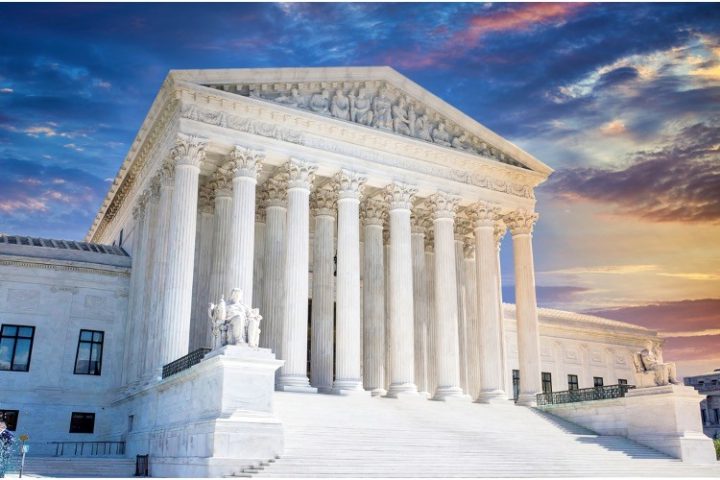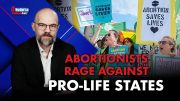
Days before the Supreme Court is likely to issue its ruling in Kennedy v. Bremerton School District, Sports Illustrated offered its criticism of it in advance. After reviewing “more than 1,000 pages of documents related to the lawsuit and [having] met several times … with [football coach Joseph] Kennedy and his legal team,” author Greg Bishop was ready to make his own ruling in the case: If the high court rules in favor of Kennedy, that ruling will be “a sledgehammer aimed at a bedrock of democracy: the separation of church and state.”
Even worse, such a decision will unleash a wave of “white Christian nationalism” on the nation. Wrote Bishop, “They believe America was created by a preeminence of people like themselves [“white Christian slavers”] and should always have laws in place that reflect America’s origins.”
He quoted Rachel Laser, president and CEO of Americans United for Separation of Church and State, which represents Bremerton: “That’s what this case is about.… [it’s] a movement that is so determined they are not willing to stop. They are willing to destroy our democracy to achieve their ends.”
She claims that those groups supporting Kennedy through amicus briefs represent a “who’s who of religious extremists in this country.”
It’s all part of a master plan, wrote Bishop, to “redefine church and state.” Previous court rulings prohibiting the teaching of creationism and prayer in schools are likely to be threatened as part of that master plan. Under recent rulings “God,” he complained, “can remain in the Pledge of Allegiance … the federal government can give money to faith-based schools, and … religious groups can discriminate based on their beliefs when hiring.”
“It’s really,” wrote Bishop, “whether church and state should be separated — and where that line of separation should be drawn. Or redrawn. Or removed.”
Kennedy himself is the unlikely “hero” in the drama. For seven years he coached Bremerton High School’s JV football team and helped with the varsity. For years he prayed by himself after each game on the 50-yard-line.
And for seven years, nobody minded. Nobody said anything. Nobody sued. Nobody even threatened to sue.
But when a school administrator paid a public compliment to how the coach was positively impacting the lives of his players, the school board told Kennedy to stop. When he didn’t, the board decided not to renew his contract.
In 2015, he sued to get his job back. That’s when First Liberty entered the fray. Since then, the lawsuit wended its way through the judicial system until it finally was taken on appeal by the Supreme Court in January.
Oral arguments were heard in April and the ruling is expected at any moment.
The ruling is likely to disappoint Bishop. The court has limited itself to answering just two questions:
(1) Whether a public-school employee who says a brief, quiet prayer by himself while at school and visible to students is engaged in government speech that lacks any First Amendment protection; and
(2) Whether, assuming that such religious expression is private and protected by the Free Speech and Free Exercise Clauses, the Establishment Clause nevertheless compels public schools to prohibit it.
The high court will not visit the issue of the alleged “separation of church and state.” David Barton, founder of Wallbuilders, clarifies that issue:
The early colonists who came to America … made sure that the government, or the State, could not control or limit religious beliefs or activities. This was their understanding of the separation of Church and State….
The phrase “separation of Church and State” cannot be found in the Constitution or the Declaration of Independence. In fact, it is not found in any of our nation’s founding documents. Related to government, the phrase first appeared in a letter written by Thomas Jefferson to the Danbury Baptist Association of Connecticut in 1801….
The Danbury Baptists wrote Thomas Jefferson expressing their concern that the government might try to regulate their religious expression. In response, Jefferson wrote his now famous letter, using the phrase “Separation of Church and State” to reassure the Danbury Baptists that the First Amendment prohibited the government from trying to control religious expression.
In short, the First Amendment was intended to keep government out of regulating religion, but it did not keep religion out of government or the public square.
That is what frightens Bishop and groups such as Americans United for Separation of Church and State. Supreme Court originalists may some day restore the original understanding of the relationship between church and state, demanding that tyrants and atheists cease using the government to regulate religion into oblivion via an intentional misreading of Jefferson’s phrase.
Related articles:
Football Coach Fired for Praying Likely To Get Case Reviewed by Supreme Court
Coach Gets Second Chance to Defend His Right to Pray in Public After Football Games



